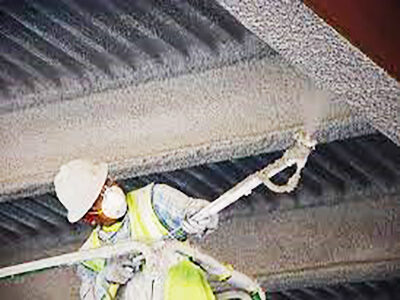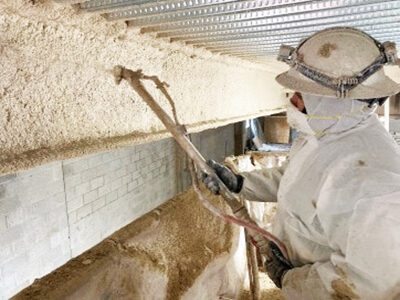

Fire cementation spray materials refer to materials used for steel structure fireproofing and thermal insulation in various applications, such as in industrial equipment, furnaces, boilers, and chimneys. These materials are designed to withstand high temperatures and protect against heat transfer and fire damage.
Some common materials used for fire cementation spray include:
Ceramic Fiber: This is a lightweight and highly insulating material made from alumina-silicate fibers. It has excellent thermal stability and can withstand temperatures up to 2300°F (1260°C). It is commonly used in high-temperature applications such as furnaces, kilns, and boilers.
Refractory Cement: This is a type of hydraulic cement that is specifically designed for use in high-temperature applications. It has a high alumina content and can withstand temperatures up to 3000°F (1650°C). It is commonly used to repair and patch furnace linings, fireboxes, and chimneys.
Vermiculite: This is a mineral material that expands when heated, creating a lightweight and highly insulating material. It has excellent fire resistance and can withstand temperatures up to 2200°F (1200°C). It is commonly used in fireproofing applications such as in fire doors and panels.
Calcium Silicate: This is a lightweight, low-density material that is highly insulating and fire-resistant. It can withstand temperatures up to 1700°F (930°C) and is commonly used in applications such as pipe insulation and fireproofing.
Perlite: This is a volcanic glass material that is lightweight and highly insulating. It can withstand temperatures up to 2000°F (1090°C) and is commonly used in fireproofing applications such as in walls and roofs.
These materials can be applied using spray equipment to create a seamless, fire-resistant coating that can protect against high temperatures and prevent heat transfer.
